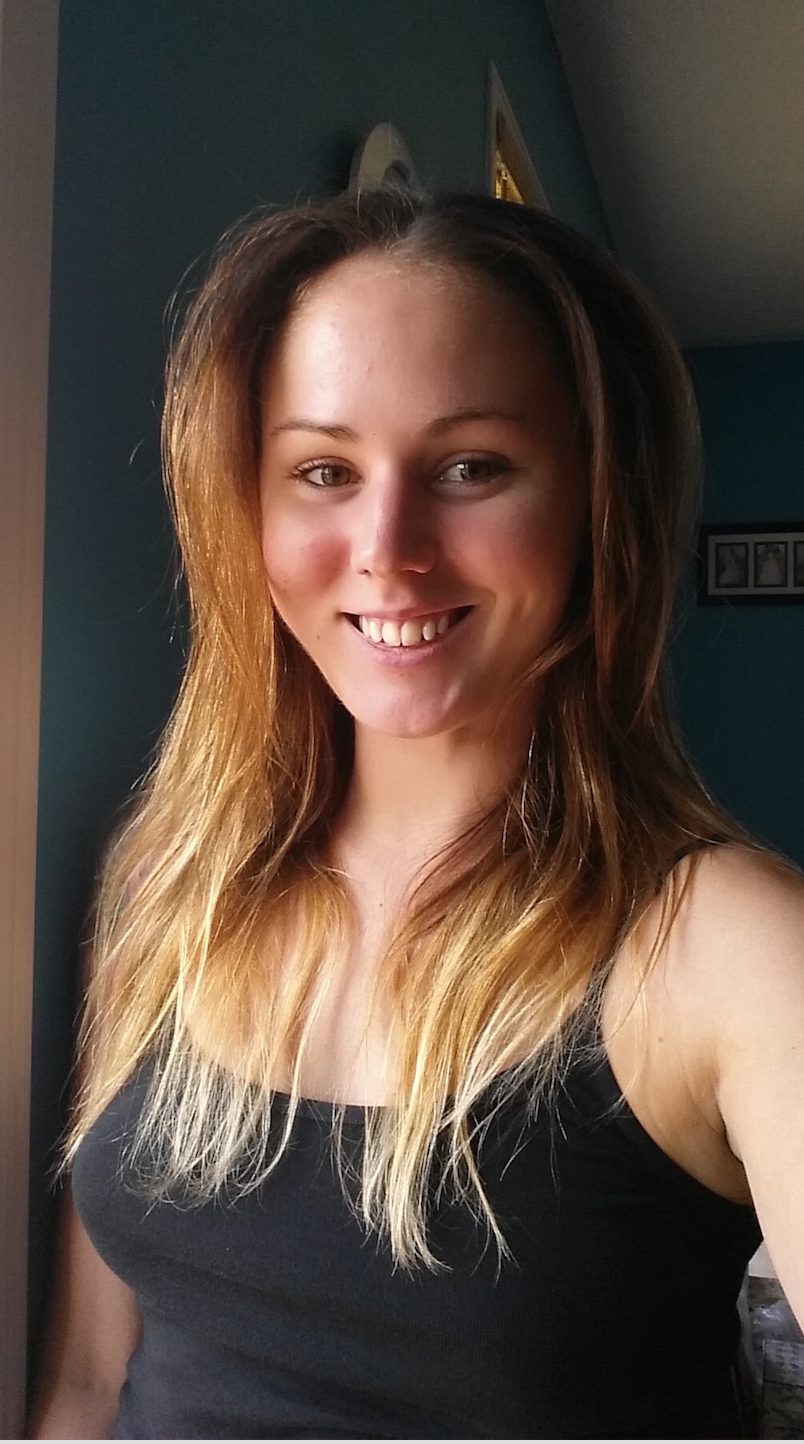AUTHOR: Jasmine Turna

Melissa is a 4th year PhD student in the MiNDS program working with Dr. Michael Mazurek. Her project focuses on concussions, more specifically, finding a biomarker for concussions. Initially, Melissa began looking at exercise as an enrichment program, but switched to a more clinical project and has since enjoyed working with a variety of athletes including varsity rugby and flag football players at McMaster. Melissa certainly has a very personal connection to her project as she has been a competitive springboard diver for 16 years and attended the Olympic trials in 2012. Although she hasn’t been jumping from any diving boards since learning about her pregnancy, she continues to be involved in the sports world and was named to the PanAm sports committee and will be responsible for field of play supervision for the diving event.
How was your experience with the 3-minute thesis project?
It was pretty cool actually. I had a great time doing it. Public speaking hasn’t really ever been something I had issues with; I did a lot of speech competitions throughout elementary school. Condensing large amounts of information into a small speech was definitely a challenge. But I just thought about what I would want to know if I were listening to this, like what would I really want to find out about the topic? Hence, I talked about why it’s important–like an outline of a puzzle–so I could later fill in the pieces expressing this idea in a way that people would want to listen. You can throw in something that’s a little funny, or something that people can relate to. You need to make it relatable because when you’re trying to get scientific material across, it can be difficult to connect with people at times. So with my topic, I tried to relate to them whether it was that they had a kid or whether they were an athlete themselves; then people will have a reason to listen a little more intently.
What advice do you have for students who are new to the program?
I was new to McMaster, graduated from York University’s Psychology program. I was always interested in psychology, but in third and fourth year I started to take neuroscience courses which got me interested in MiNDS. If I have any advice for students, it would be to make sure that you actually like the project you’re going to be doing. Often students want to be in a graduate program and there’s a tendency to find a supervisor and make your goals fit their description, but considering the amount of time and effort being put in on your part, you want to make sure that you actually enjoy it.
Looking back, how was your first year in the MiNDS program?
I did a one year Master’s and spent a great deal of time trying to figure out what it meant to be a graduate student. No one in my family went to graduate school so I felt like I was stumbling through most of it. I knew I wanted to do research but at the same time didn’t know what to expect with the overall experience.
What advice would you give to your first year self if you could?
Because everyone in the program is so spread out, physically, with some people on the main McMaster campus and others at St. Joe’s, etc., we have a tendency to lose contact with our peers. Neuro 700 is great because you see everyone in your class all the time, but you should really make an effort to stay in touch afterwards. As you progress in graduate school, your peers offer great support and can act as a source of information.
What is your favourite memory/event in the program?
The best memories of the program involve the times I went to lunch with the speakers but students usually avoid going to them. It’s hard to go when you don’t really know the speakers; you feel uncomfortable because you don’t know what to say to them. One time, I went to a lunch with a colloquium speaker whose research I was really interested in but I didn’t think I knew it well enough to ask a question. So since he was from Vancouver I asked him about hockey, but turned out he wasn’t a fan. Even though it obviously wasn’t the best question, it broke the ice and helped because it gets the discomfort out of the way. Oftentimes, even if you don’t know what to say, the speakers will always ask you things about your work. These lunches were also how Dr. Sue Becker came to be on my committee. If students can get over the nervousness they associate with them, the lunches are actually very interesting and can be very useful.
What are your plans for after you complete your degree?
I’m hoping to graduate in the fall/winter after a short maternity leave, and I am looking at some post-doctoral opportunities. I want to work in a concussion clinic because there are still so many unanswered questions about the topic. My supervisor sees a lot of kids with post-concussion syndrome and the parents come in not knowing what’s going to happen; they’re fighting with schools to allow their children time to heal and they have questions about their long-term development, but unfortunately we don’t have any good answers for them. The future of sports and these unanswered questions are important and personal questions for me, because we need to protect an athlete’s best interest. I also really enjoy seeing and talking to patients. There are so many different ways you can help them without realizing you’re doing anything, like giving them comfort and reassurance. It seems like a small thing but it’s really important to them. Ideally, I’d like a role where I can still see and work closely with patients.
To view Melissa’s presentation click here.